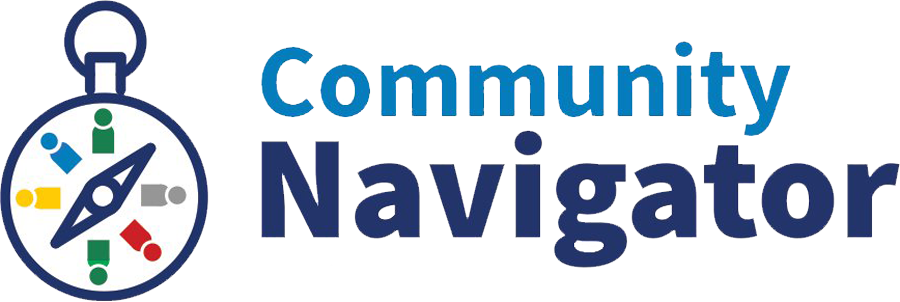News
Community Development Finance Authority (CDFA) Releases NH Small Business Ecosystem Assessment Report
To gain new insights into the state of New Hampshire's small-business ecosystem, CDFA undertook a comprehensive assessment culminating in the NH Small Business Ecosystem Assessment report. This report (download it here) casts new light on the challenges and opportunities facing NH small businesses, particularly those from underserved and historically marginalized communities.
Small Business Ecosystem Assessment 2024 Executive Summary (Download)
Despite the state's growing population diversity, the rate of business ownership among new populations in New Hampshire remains compared to the national average. Underserved entrepreneurs, including BIPOC individuals, people with disabilities, immigrants and refugees, veterans, women, formerly incarcerated individuals, LGBTQ+, and gender non-conforming individuals, encounter unique obstacles in navigating an ecosystem that often overlooks their needs.
Small businesses remain the backbone of New Hampshire's economy, serving as pillars of economic, social, and cultural vitality. Consider that an overwhelming 99 percent of the state's businesses are classified as “small businesses.” Among these, a significant 79 percent operate with just one employee, highlighting their pivotal role in local economies. And, nearly half of New Hampshire's workforce, accounting for 49.8 percent, is employed by small businesses.
Recognizing the huge impact of small businesses on our communities and economy, CDFA’s strategies for economic development prioritize their growth and sustainability. By fostering a supportive environment for small businesses, we will pave the way for job creation, wealth generation, asset building, and upward mobility for all members of our society.
Shifts in NH’s demographic makeup
New Hampshire, like the rest of the United States, is experiencing shifts in its demographic makeup and business landscape. While the state's total population grew at a slower rate than the national average between 2000 and 2022, the fastest-growing populations are minorities. However, the number of individuals identifying as White increased only marginally compared to the significant growth seen among racial and ethnic minorities, particularly Hispanic/Latino and Asian communities.
In New Hampshire, women represent a significant portion of the workforce, comprising 47.6 percent of workers and owning 39.6 percent of businesses. Racial minorities make up 6.5 percent of workers and own 4.0 percent of businesses, with Hispanics representing 3.4 percent of workers and owning 2.3 percent of businesses. Additionally, veterans play a vital role in the business community, comprising 5.5 percent of workers and owning 8.9 percent of businesses.
Underserved businesses, including those owned by immigrants, veterans, and BIPOC individuals, are emerging as significant economic drivers. Immigrants form a substantial portion of new businesses in the United States, with rates exceeding 40 percent in some states. Moreover, immigrants are 10 percent more likely to own their own business than U.S.-born natives.
The BIPOC population in New Hampshire is on the rise, making up over 10 percent of the state's population. This growth is reflected in the increasing number of minority-owned businesses, which rose from 3.5 percent to 4.0 percent between 2011 and 2021.
Women-owned businesses also contribute significantly to the economy, experiencing higher earnings growth compared to male-owned firms nationally. In New Hampshire, women-owned businesses generate substantial revenue and employment opportunities.
Additionally, LGBTQ individuals play a crucial role in the workforce, with approximately 5 percent of the workforce in New Hampshire identifying as LGBTQ.
Underserved businesses face various challenges
Despite their significant contributions, underserved businesses face various challenges, including limited access to capital, workforce challenges, and public safety concerns. Addressing these barriers is essential to fostering a more inclusive and thriving business environment in New Hampshire.
As the state navigates these demographic shifts and economic challenges, it's crucial to support and empower all segments of our business community. By addressing systemic barriers and fostering a supportive ecosystem, CDFA can ensure that all businesses have the opportunity to thrive and contribute to New Hampshire's economic prosperity.
For years, the Community Development Finance Authority (CDFA) has been a crucial player in supporting New Hampshire's small-business ecosystem. Through initiatives like the Community Development Block Grant (CDBG) funded Microenterprise Program, CDFA has provided vital funding to low- and moderate-income businesses with fewer than five employees. In its commitment to reducing barriers for underserved entrepreneurs, CDFA secured funding from the Small Business Administration (SBA) Community Navigator Pilot Program (CNPP), enhancing access to essential resources and programs for aspiring business owners.
Failure to address the challenges faced by the underserved business community can have far-reaching consequences, including exacerbating inequality, stunting economic growth, and impeding innovation and essential service delivery. To address these disparities, CDFA's report proposes a series of recommendations aimed at strengthening the small-business ecosystem, including increasing support for businesses at all stages of development, enhancing access to capital, and fostering a more inclusive entrepreneurial environment.

